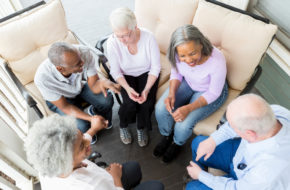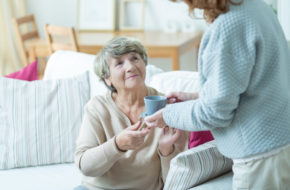I recently heard someone speak about the importance of community. I was intrigued by an unusual experience he cited, called the Roseto effect.
According to UnimedLiving.com, “In 1964 a study published in the Journal of the American Medical Association examined a population of recent Italian immigrants in Roseto, a small town in the state of Pennsylvania. The study was instigated because the town doctor was completely baffled by the Rosetans’ near immunity to heart disease. He reported his observations” and an extensive study was conducted, comparing health statistics in the community to those of neighboring towns.
In fact, from 1954 to 1961, Roseto had nearly no heart attacks within the population of men 55 to 64, normally a high-risk group, and men older than 65 had a death rate of 1%, while nationally the average was 2%, despite other behaviors (such as smoking) considered unhealthy and sometimes-hazardous working conditions.
The local physician attributed the lower heart-disease rate to lower stress. Researchers suggested “the quality of family relationships and the social milieu may be pertinent to the occurrence of or protection against death from myocardial infarction.” (The Huffington Post also writes about it here in more detail.)
Interestingly, as social structures changed and the community grew less tight-knit, heart-disease rates rose to be comparable to the rest of the country.
There are certainly no guarantees that living in a close-knit community will protect you against heart disease but, at least for me, the Roseto effect makes sense.
When we live in healthy communities, assisting one another and enjoying life together, it just makes sense that stress levels are lower. With stress reportedly one factor in heart disease, it seems logical to associate life in close community with others to taking at least one step closer to physical, emotional and spiritual health.
Creating that type of community lies at the heart of what senior living services providers such as Diakon do.
The very design of our senior living communities, the amenities we offer and the events we craft are all designed to engender a sense of community not only among our residents but also between residents and staff members and residents and the general community.
Again, no one can claim creating such community will ensure lowered heart concerns or even decreased stress levels, but it certainly cannot hurt. And when you speak with our residents, many mention the newfound sense of community they have found with us.
By Melissa Kindall
Manager, Social Media and Digital Communications Manager
Corporate Communications & Public Relations
Because we review comments, they do not appear immediately. Please do not submit each comment more than once. Please review our comment policy.





